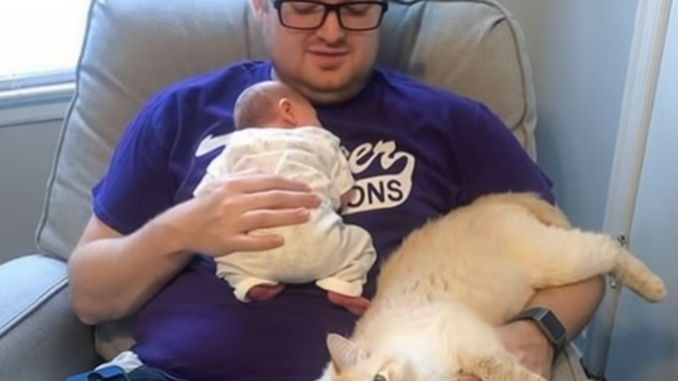
I used to think I understood silence. Growing up with my brother Keane, who was diagnosed with autism at three, I learned to read his world through glances and gestures. He didn’t speak—ever. But he was gentle, always humming, always still.
After our parents passed, I took him in. I had just had a baby, Owen, and life was chaos. Keane mostly kept to himself—folded his clothes, stayed quiet, hummed constantly. I barely noticed it after a while.
Then one day, everything changed.
I’d just put Owen down after a meltdown and took a quick shower—only to hear his cry pierce through the walls. I rushed out, heart pounding… and froze.
Keane was in my armchair—Owen asleep on his chest, one hand patting his back, the other cradling him gently. Even our cat Mango was curled on his lap.
Then Keane looked up and whispered, “He likes the humming.”
My silent brother spoke. Then he said, “It’s like the yellow app. With the bees.”
It broke something open in me. I hadn’t realized how much he saw. How much he could give.
From then on, he held Owen more. Then fed him. Changed him. Spoke—quietly, but more every day.
I started seeing him—not just as my brother with autism, but as a caregiver, a whole person.
One night, Owen hit the side of his crib and cried. Keane panicked. “I dropped him. I ruined it.”
But Owen was fine. I sat with Keane and said, “You’re not broken. I just didn’t know how to hear you.”
He sobbed in my arms.
Now, six months later, Keane volunteers at a sensory play center. Owen’s first word wasn’t “Mama.” It was “Keen.”
All because of one moment.
“He likes the humming.”
That’s when I realized—sometimes, the quietest voices are the ones that change us most.
Leave a Reply